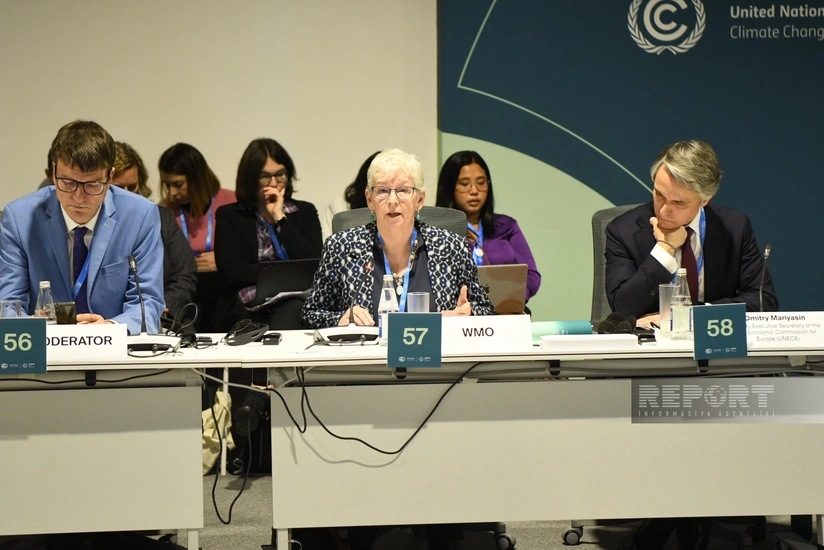Ko Barrett: Glaciers experienced largest mass loss in 50 years of observations
- 21 November, 2024
- 09:36

Last year was recorded as the driest year for rivers in the history of global observations, spanning more than thirty years, the World Meteorological Organization (WMO) Deputy Secretary-General Ko Barrett said at a water-focused event during COP29.
According to Report, she noted that almost half of the planet is experiencing below-normal annual river flow, and glaciers have experienced the largest mass loss in 50 years of observations, which is an alarming signal for the future water security of billions of people.
"We are suffering from both intensifying droughts and devastating floods. A warmer atmosphere can hold more moisture, and warmer oceans increase precipitation intensity. Each degree of warming increases the risk of extreme precipitation. Water-related disasters are the main cause of human and economic losses in many countries," she said.
Barrett noted that integrated water resource management is fundamental to climate resilience and adaptation processes. Water also plays a key role in the production of minerals important for hydrogen and battery technologies, making the transition to "green energy" a water-intensive process, she said.
